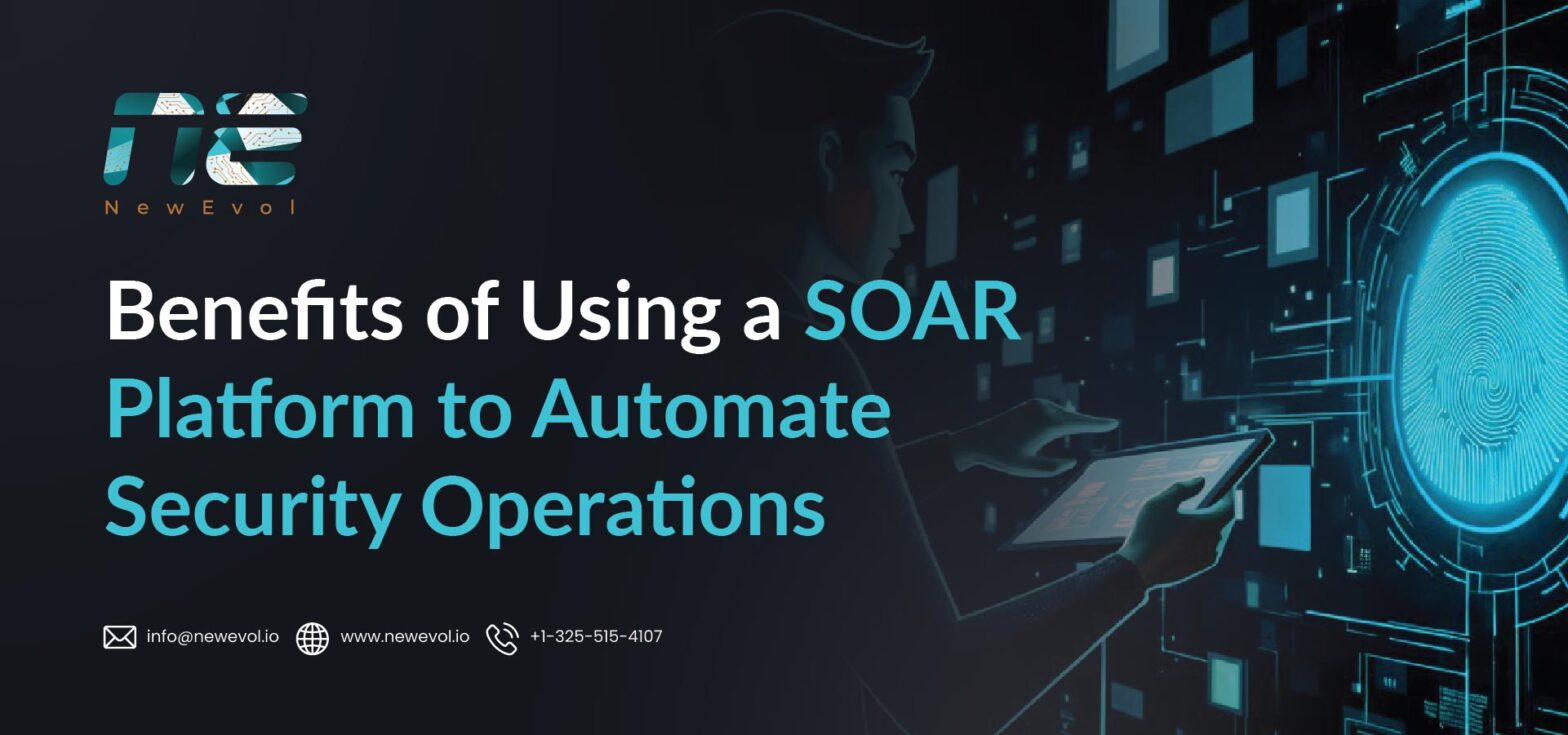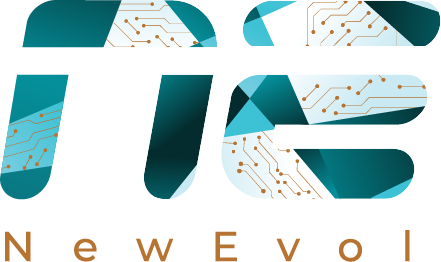Benefits of Using a SOAR Platform to Automate Security Operations

Enterprises in the USA face increasingly sophisticated cybersecurity threats. Cybercriminals leverage advanced tactics such as ransomware, phishing campaigns, insider threats, and zero-day vulnerabilities to compromise sensitive data, disrupt operations, and damage organizational reputation. The sheer volume and complexity of security incidents have rendered traditional manual security operations insufficient.
The USA SOAR tools and solutions market was valued at approximately USD 1.5 billion in 2024 and is projected to grow at a CAGR of nearly 14% through 2030, driven by strong adoption in BFSI, healthcare, government, and IT sectors.
This is where a SOAR (Security Orchestration, Automation, and Response) platform becomes invaluable. By integrating threat intelligence, automation, and incident response, SOAR platforms empower security teams to operate faster, smarter, and more efficiently, enhancing the effectiveness of cybersecurity services in USA and mitigating risks while improving organizational resilience.
What is a SOAR Platform?
A SOAR platform is a cybersecurity solution that orchestrates security tools, automates repetitive tasks, and coordinates incident response across an enterprise’s IT environment. Unlike conventional security systems that require manual intervention, SOAR platforms leverage automation and analytics to streamline workflows, reduce human error, and accelerate the mitigation of threats.
Key components of a SOAR platform include:
- Orchestration – Integrates disparate security tools such as SIEMs, firewalls, endpoint protection, and threat intelligence feeds.
- Automation – Executes predefined playbooks to handle routine security tasks, such as alert triage or user access revocation.
- Incident Response – Coordinates remediation actions, from containment to recovery, ensuring consistent and rapid response.
- Threat Intelligence – Aggregates and analyzes data from multiple sources to provide actionable insights.
- Reporting and Analytics – Offers dashboards and metrics to monitor performance, compliance, and operational efficiency.
For USA enterprises operating in sectors such as finance, healthcare, government, and retail, SOAR platforms transform security operations from reactive to proactive, enabling organizations to stay ahead of emerging threats.
The Need for SOAR in Modern Security Operations
Security teams in the USA face a daunting challenge: the volume of security alerts far exceeds the capacity of human analysts. According to recent studies, security operations centers (SOCs) receive thousands of alerts daily, with a significant percentage being false positives. This results in alert fatigue, delayed response times, and unaddressed vulnerabilities.
Additional challenges include:
- Complex, hybrid IT environments – Enterprises often operate across on-premises, cloud, and multi-cloud environments.
- Evolving threat landscape – Cybercriminals continuously refine tactics, techniques, and procedures (TTPs).
- Regulatory compliance requirements – Organizations must adhere to regulations such as HIPAA, PCI DSS, and NIST frameworks.
- Resource constraints – Skilled cybersecurity professionals are in high demand, and teams often operate under staffing limi.tations
A SOAR platform addresses these challenges by automating routine tasks, streamlining workflows, and enabling faster incident response, ensuring that security teams can focus on high-value strategic work.
Key Benefits of Using a SOAR Platform
Cloud-based SOAR deployments are projected to dominate, supported by the rising adoption of hybrid and multi-cloud environments, with automation significantly reducing mean time to respond (MTTR) by up to 80%.
Here are the key benefits of using SOAR Platform:
1. Accelerated Incident Response
A SOAR platform automates repetitive tasks and executes predefined playbooks to handle common threats. For example, upon detecting a phishing email, the platform can automatically:
- Isolate affected endpoints
- Block malicious URLs or IPs
- Notify relevant stakeholders
- Initiate forensic data collection
This automation reduces the mean time to detect (MTTD) and mean time to respond (MTTR), limiting the potential damage caused by security incidents.
2. Improved Threat Visibility and Analytics
SOAR platforms integrate data from multiple security tools, providing a centralized view of the threat landscape. Dashboards offer real-time insights, enabling SOC teams to prioritize alerts based on severity, impact, and risk.
For example, in a financial services organization in the USA, a SOAR platform can consolidate data from SIEMs, endpoint detection tools, and threat intelligence feeds, highlighting high-priority alerts such as suspicious wire transfers or anomalous account activity.
3. Reduced Alert Fatigue
Manual triaging of security alerts is time-consuming and prone to error. SOAR platforms automate alert validation and enrichment, allowing analysts to focus on critical threats rather than low-risk alerts. By filtering noise and prioritizing incidents, organizations can improve response efficiency and reduce operational stress on security teams.
4. Consistency and Standardization
Human-led incident response can be inconsistent, varying by analyst skill or time of day. SOAR platforms standardize security workflows, ensuring that every incident is handled according to predefined procedures. This not only improves effectiveness but also supports auditability and compliance with regulations.
5. Enhanced Collaboration Across Teams
A SOAR platform provides centralized communication and task coordination across IT, cybersecurity, and business units. For example, when a ransomware attack is detected, the platform can assign tasks to IT, legal, and communication teams simultaneously, ensuring a coordinated response.
6. Integration with Existing Security Tools
Modern enterprises rely on diverse security tools, including firewalls, endpoint protection platforms, SIEMs, vulnerability scanners, and threat intelligence feeds. SOAR platforms integrate seamlessly with these tools, consolidating workflows and maximizing the value of existing investments.
7. Support for Regulatory Compliance
Compliance is a critical consideration for organizations in sectors such as healthcare, finance, and government. SOAR platforms provide automated reporting, audit trails, and standardized processes, helping organizations meet regulatory requirements efficiently while demonstrating due diligence in security operations.
8. Continuous Improvement and Machine Learning
Many SOAR platforms leverage machine learning algorithms to continuously improve detection and response capabilities. By learning from past incidents, the platform can optimize playbooks, reduce false positives, and anticipate emerging threats.
Real-World Applications of SOAR in the USA
- Finance: Automates fraud detection workflows, monitors transaction anomalies, and enforces compliance with PCI DSS.
- Healthcare: Protects patient data, automates incident response for breaches, and ensures HIPAA compliance.
- Retail: Detects suspicious transactions, prevents credential theft, and coordinates response across online and in-store systems.
- Government: Monitors critical infrastructure, automates response to phishing campaigns, and ensures adherence to NIST and ISO standards.
Challenges and Best Practices
While SOAR platforms offer significant benefits, organizations must navigate challenges to maximize ROI:
- Complex Playbook Design – Defining effective automation workflows requires careful planning and subject-matter expertise.
- Integration Limitations – Not all legacy tools may be fully compatible; testing and validation are essential.
- Change Management – Analysts need training to adapt to new workflows and automation tools.
- Continuous Optimization – SOAR workflows require regular updates based on evolving threats and business needs.
Best practices include:
- Define Clear Use Cases – Identify processes that benefit most from automation, such as phishing response or malware triage.
- Prioritize Integration – Ensure the platform connects with critical security tools and data sources.
- Start Small, Scale Gradually – Implement automation incrementally, validating playbooks and workflows before expanding.
- Train Security Teams – Invest in staff training for platform adoption and workflow management.
- Monitor and Refine – Continuously evaluate performance metrics and optimize automation to reduce false positives.
NewEvol’s SOAR Solution
NewEvol provides USA enterprises with advanced SOAR platforms designed to automate, orchestrate, and optimize security operations:
- Automated Playbooks – Reduce response time and human error through intelligent workflows.
- Centralized Threat Visibility – Aggregate alerts from multiple tools for real-time situational awareness.
- Integration with Existing Tools – Seamlessly connect with SIEMs, EDRs, firewalls, and threat intelligence platforms.
- Regulatory Compliance Support – Simplify reporting and audit readiness for HIPAA, PCI DSS, and NIST standards.
- Continuous Learning – Machine learning algorithms optimize playbooks and incident handling over time.
With NewEvol’s SOAR solutions, organizations in the USA can transform their security operations from reactive to proactive, improving resilience, efficiency, and overall cybersecurity posture.
End Note
In a landscape where cyber threats are growing in sophistication and volume, manual security operations are no longer sufficient. SOAR platforms offer intelligent automation, standardized workflows, and real-time incident response, enabling security teams to operate more efficiently while reducing risk.
For USA enterprises, leveraging a SOAR platform is not just a technological upgrade—it is a strategic necessity to protect sensitive data, ensure regulatory compliance, and maintain business continuity. By integrating a SOAR platform from NewEvol, organizations can achieve faster threat detection, improved operational efficiency, and enhanced resilience, ensuring a proactive approach to modern cybersecurity challenges.
FAQs
1. What is a SOAR platform?
A SOAR platform is a cybersecurity solution that orchestrates tools, automates workflows, and coordinates incident response across an enterprise.
2. How does SOAR improve security operations?
It accelerates incident response, reduces alert fatigue, provides centralized threat visibility, and standardizes workflows.
3. Can SOAR integrate with existing security tools?
Yes. Modern SOAR platforms integrate with SIEMs, EDRs, firewalls, threat intelligence feeds, and other security tools.
4. Does SOAR help with regulatory compliance?
Absolutely. SOAR platforms provide automated reporting, audit trails, and standardized workflows to support compliance with regulations like HIPAA, PCI DSS, and NIST.
5. How does NewEvol’s SOAR solution benefit enterprises in the USA?
NewEvol’s platform automates response workflows, integrates with existing tools, provides centralized threat visibility, and supports continuous improvement and regulatory compliance.

